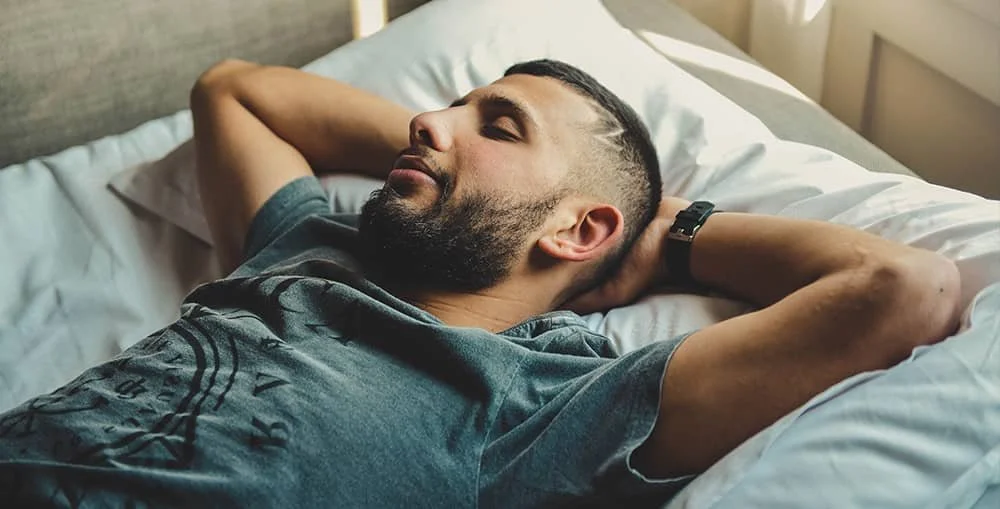The Science of Sleep: How Much Sleep Do You Really Need?
Table of Contents Show
Despite being a regular daily function of the human body, sleep is still a mystery to many. Learning about sleep can help you get the most out of your rest and be prepared to feel and do your best every day.
Sleep is essential to everyone's health and well-being, and learning how to get the most from your sleep will ensure that you will feel great and productive.
How Much Sleep Is Enough?
The short answer to this age-old question is that it depends. Sleep is unique to each person, and while some can function from a few hours of rest, others need significantly more time to wake up feeling alert. Here is what science tells us about how much sleep we should get.
The CDC states that adults between the ages of 18 and 64 years old should be getting between 7 and 9 hours of sleep each night. As you get older, the sleep you need may decrease to just over 7 hours or may change formats. You could get a few hours overnight and a midday nap to accumulate to 7 in 24 hours.
Experts say teens and children under 18 require even more sleep to remain alert and focused throughout the day. Sleep is a huge factor in the developmental process, and children need as much sleep as possible to grow their bodies and brains.
While 7-10 hours is the recommended amount for people of all ages, one out of three adults reports that they do not get at least seven hours of sleep each night, according to the CDC.
Sleep is not just critical to recovery, it is essential
How Much Sleep Do You Need to Be Productive?
Many adults are not getting the recommended amount of sleep yet still perform their daily tasks effectively. While at least seven hours is recommended for maximum productivity and health, what happens when you do not get enough?
Researchers at the American Academy of Sleep Medicine have studied how much a lack of sleep affects overall productivity. Researchers gathered baseline data from people who regularly get seven to eight hours of sleep each night. With the baseline set, they measured the productivity of people who only get between five to six hours of sleep each night.
Researchers found that cutting just one to two hours of sleep will affect your productivity by 19% the next day.
The study was continued with individuals who got less than five hours of sleep each night. They found that productivity drops 29% the day after a night of fewer than five hours of sleep. Your productivity drops when you go multiple nights in a row with less than the recommended amount of sleep.
Considering this drastic drop in productivity levels, it becomes clear how vital a good night's sleep is. To be at your most productive, science says you need to get seven hours or more of sleep each night. Skipping sleep to do more work may not be beneficial in the long run. It would be best if you prioritized getting the proper sleep to reach your most productive state.
What are the signs of sleep deprivation?
Your body will let you know when you don't get enough sleep. Sleep is such an important process for the body that just missing a few hours will result in some detrimental side effects. Sleep deprivation affects both your mind and body.
You'll notice that your thinking is slowed and that you have a hard time paying attention to tasks for an extended time. Your memory will worsen, and you will have difficulty making well-informed decisions.
Without enough sleep, your body will feel physically exhausted, and you can experience aches and pains. Sleep deprivation can cause noticeable mood swings and make it difficult to deal with stress.
Repetitive sleep deprivation can have lasting effects on the body. Your immune system can weaken without enough sleep. You may experience uncharacteristic weight gain.
Extended sleep deprivation can also lead to heart disease, diabetes, and mental health disorders like depression and anxiety.
If your not sure whether you are sleep deprived, best to get a professional evaluation
How can You Improve your Sleep and Boost productivity?
Life can get hectic, and getting all the sleep you need to stay healthy and productive can be challenging. Taking extra steps to ensure you get enough sleep can help you stay productive all day. One of the most significant factors affecting your sleep is your routine before bed.
A more intentional bedtime routine can help you fall asleep faster and stay asleep throughout the night. Consider putting your phone or computer away an hour before bedtime. The blue light from your mobile devices has been proven to disrupt sleep patterns significantly. You can read before bed, meditate, or drink herbal tea. A consistent and intentional bedtime routine can help tell your brain it is time to sleep.
Incorporating a nap into your daily schedule can also benefit your overall productivity. While a full nap is not plausible for most people throughout the workday, a quick 20-minute nap during a break or lunchtime can help you feel alert. It can increase productivity for the remainder of the day.
Caffeine is often used to boost production, but consuming too much too late in the day can make it difficult to fall asleep. Be sure to limit your caffeine consumption during the second half of your day. Adding exercise to your daily routine can help you fall asleep faster and sleep deeper.
Improving your sleep with minor changes throughout your day can help you feel your best and be more productive each day. Stick to a consistent schedule and watch your productivity and your overall health improve significantly.
If you have any further doubts or questions regarding this subject or another treatment, contact one of our experienced Acupuncturists or Registered Massage Therapists here at West End Wellness Clinic. You can either give us a call or make an appointment.
Disclaimer: Please remember this article is for informational purposes only and should not replace professional medical advice. Please consult a healthcare provider or someone with the correct qualifications before starting any new exercise or treatment program.



